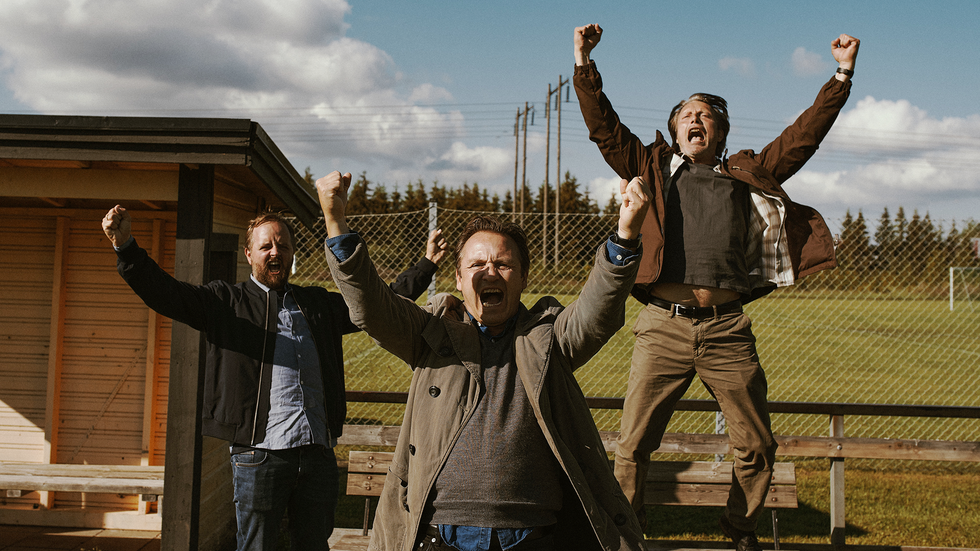In his introduction to a 2000 Norwegian translation of On the Psychological Effects of Wine, a work by 19th-century Italian novelist Edmondo de Amicis, the Norwegian psychiatrist Finn Skårderud made an interesting suggestion. It was one about which he was only partially serious. What if our everyday malaise had a simple solution: wine? “After a couple of glasses, everything falls into place. It feels right,” he wrote. “You quickly conclude that you were actually created with a negative blood alcohol content of about 0.05 per cent.” In other words, life would be better if we corrected that balance; if we spent most of our time, well, a little bit drunk.
Of course, a specific blood alcohol level might be difficult to maintain, Skårderud acknowledged, and it would be easy for a “movement towards the ideal” to become “a movement away from the same”. Still, he posited, “In the human quest to find the optimal level of wine, in running back and forth between too little and too much, we can become acquainted with aspects of ourselves. And we can have a really good time… especially true when we experiment in the company of others.”
A few years ago, the 52-year-old Danish film director Thomas Vinterberg, a founder of the austere film-making manifesto Dogme 95, of which his debut feature, The Celebration, or Festen (1998), is the most revered example, and who later made acclaimed movies such as The Hunt (2012) and Far From the Madding Crowd (2015), came across Skårderud’s words. Since 2013 he’d been working on a film idea about alcohol, and the Danes’ relationship to it, but the script wasn’t quite pulling together.
“I had several years of trying to find the engine for the story. It was not really a story, it was just a theme,” says Vinterberg, over a Zoom call from his summer house north of Copenhagen, where he has come for a break — “to hang out and mow the lawn” — though it is also the kind of break where you talk to journalists at 10 o’clock at night, as we are doing. “I started to play with the idea of making it an experiment. Then I heard that [Skårderud] had come up with this theory and I thought, ‘Well here’s our experiment.’”
In Vinterberg’s new film, Another Round, or Druk, to give its Danish title, four middle-aged school teachers decide to take Skårderud’s suggestion at face value. The central character is a history teacher, Martin, played by Mads Mikkelsen — a good friend of Vinterberg’s since working together on The Hunt — who has lost his wife’s interest and his students’ respect; like his colleagues, he is suffering from a kind of middle-aged stagnancy. “That drift that you realise has overtaken you at a certain point,” as Vinterberg describes it. “These people have come to a place in their lives where they yearn for the youth and weightlessness that we all abandon.” Perhaps, the friends wonder, the right amount of booze — a snifter or two at break-time — will enable them to get that weightlessness back?
The results, at least at first, are persuasive. The four men — the other three are also played by Vinterberg veterans: Lars Ranthe, Magnus Millang and Thomas Bo Larsen — become more confident, more dynamic. Their relationships improve; they have more fun. It all looks a little… appealing (even New Scientist took it seriously enough to ask: “Would We Benefit from Always Being a Bit Drunk?”). Soon, they start testing their operational limits — justifying some very funny set-pieces, including an ill-fated quest to buy some cod — though eventually the effects of sustained alcohol consumption take a grave toll. (There’s your answer, New Scientist.)
And yet the film is careful never to chastise the characters for their choices. “We wanted to steer away from the moralistic,” Vinterberg says. “I wanted to observe and not judge. Who am I to tell people how much to drink or how to live their lives? To begin with it was solely a celebration of alcohol, but I felt it was too cynical and not truthful. I think had I been in my twenties, back in my Dogme days, I probably would have stuck to that version, but I did feel a moral obligation of telling how bad things can be, because there’s so many tragic stories also close to me.” Vinterberg mentions later that Larsen, “one of my best friends”, is a recovering alcoholic: “We’ve made movies together for 30 years and had a great deal of conversations about this.”
Another Round has been awarded numerous honours in Denmark, and also by film festivals and critics’ circles around the world, from San Sebastian to St Louis. In April this year, it won the Bafta award for “film not in the English language”, followed by the Oscar for “best international feature”. (It has also won the approval of Skårderud himself, despite now, thanks to the exposure from the film, finding his cute idea frequently misreported in the media as a fully fledged psychological theory. He describes Another Round to me in an email as “a beautiful and clever film… I am very happy for its success.”)
“It’s a surprise,” says Vinterberg, of the international response. “It’s particularly surprising because this movie is, I guess, particularly Danish. The drinking culture of course is specifically Danish: a combination of being very chaste and rational, yet still very liberal and anarchic. We have a ritual every year, as an example, called ‘Christmas lunch’, which is where people at work get bonkers: crazy drunk. All elements of hierarchy, of sexual boundaries, are just gone. And it’s every workplace in the entire country. It’s interesting to see this very rational shire of hobbits, who are supposed to be the most happy nation on Earth, also have the need to go crazy as well.”
Another Round is hard to categorise. It is funny, and it is also sad, though describing it as a “tragicomedy” suggests a generic neatness it defiantly doesn’t have. At times it has the dizzy abandon of his Dogme works; however, for Vinterberg the touchstone is his graduate film, a short called Last Round (1993), about three friends, one of whom is dying and played by Thomas Bo Larsen, spending a final night together in Copenhagen (rightly or wrongly, it is available to view on YouTube).
“Last Round was so unguarded, so naïve and so open. That has always been my defining film,” he says. “I feel Another Round is a little bit of a return to what I did back then. Hence the title.”
It is also, Vinterberg is fastidious to point out, “about something else than drinking”. It’s about middle age, he says, but it’s also about being young, and about how in general “our lives have become too measured”. He mentions observations made by his second (and current) wife, the actress Helene Reingaard Neumann, who is also an ordained Lutheran minister: “She knows from all the young people who attend church that they’re feeling historically bad. We’re in a society where people are oppressed by this performance culture, which means that there’s a huge need to let go. She says my movie is about ‘the uncontrollable’, and I like to think that my movie is rooting for this: to give space to the uncontrolled life.”
There is one other thing to know about Another Round. It is dedicated to Vinterberg’s elder daughter, Ida. Four days into filming, she had been driving in Belgium with her mother, Vinterberg’s ex-wife, Maria Walbom, when they were in a collision with another vehicle — the driver was distracted by his phone — and Ida died. She was 19. Ida had been a great supporter of the idea for Another Round: at one point it was planned that she would play Mikkelsen’s teenage daughter. Some of Ida’s classmates appear in the film as Martin’s students, and scenes were shot in her high school.
When I ask him about the potential awards recognition — when we speak the Baftas are a week away, the Oscars three — he replies, “I suppose you know about my daughter?”
I tell him that I do. “Well, I’m more than just glad, because it has a different meaning this time. All this is an overwhelming experience, and it’s honouring her memory at the same time. We pulled out our hearts at a very painful time, and it’s being appreciated, and that’s a great relief. There was so much love on the set of shooting this. Love and grief. And probably you can feel that on the screen.”
Perhaps nowhere do you feel it more keenly than in the ending which — and I don’t think it’s a spoiler to say so — is possibly one of the most uplifting in recent cinema. It is a dance, performed by Mikkelsen, surrounded by people, but also alone. Like the rest of Another Round, it is hard to categorise. It is funny, it is joyful, it is moving, and it is somehow also unspeakably sad. Nevertheless, Mikkelsen, who trained as a dancer before becoming an actor, took some convincing to do it.
“He was reluctant in the beginning,” says Vinterberg. “He kept trying to get me to do it in other ways; of making it a dream sequence or something. I stuck to it not because I was certain, but because I felt excited thinking about it. When we shot it, finally, it was a cathartic moment, not just in the film but for us watching. You see the reluctance built into his choreography; he used it to show Martin’s toing and froing, and then finally he surrenders. And that, I guess, is what the main theme is in this movie. To surrender to what’s around you. To let go of control.”
Another Round is out on 2 July

Miranda Collinge is the Deputy Editor of Esquire, overseeing editorial commissioning for the brand. With a background in arts and entertainment journalism, she also writes widely herself, on topics ranging from Instagram fish to psychedelic supper clubs, and has written numerous cover profiles for the magazine including Cillian Murphy, Rami Malek and Tom Hardy.














